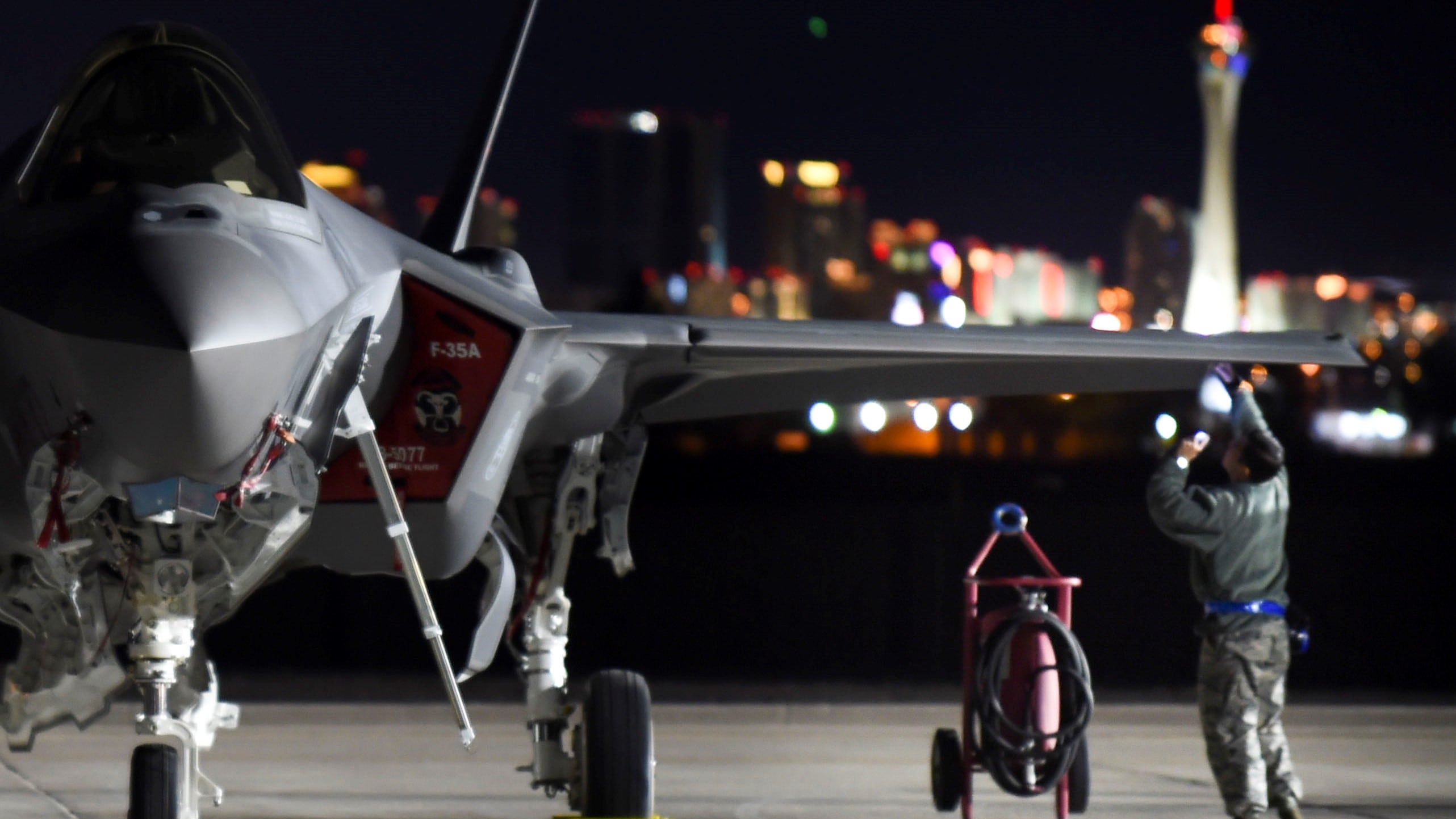WASHINGTON — With a congressionally-requested report recommending the Pentagon’s chief management officer role be eliminated, the current occupant of that office says she is open to new organizational ideas, as long as they do not cause a backslide in what she perceives as the forward momentum achieved by her office.
“I’m focused on the outcomes. Strengthening responsibilities and authorities and expectations and goals and targets — that’s always a good thing, we should be doing that, always,” Lisa Hershman told Defense News in a Thursday interview. “I think the worst-case scenario is reform slows down or starts to slide backwards.”
In 2016, Congress elevated the deputy chief management officer position to a full CMO role, officially designating the CMO the number three official in the department. The goal: to appoint a lead for reform efforts inside the Pentagon, after years of internal modifications had failed to produce significant savings.
But in late 2019, members of Congress expressed a belief that the CMO’s office had not had significant success and requested an independent review by the Defense Business Board on what the organization should look like going forward. That report, released Wednesday, recommended eliminating the CMO position, with three options for what the reform position could look like going forward.
The DBB report looked back to the early days of the CMO’s office, including the many years in which it was really a deputy CMO job with lesser responsibilities. While Hershman noted that was what the group was tasked with, she said it was somewhat “rooted in the past,” as the current CMO setup — fully empowered as the number three official in the department — has only been around for roughly two years, with Hershman herself only confirmed as the CMO in December of last year.
Hershman said she was “very intrigued” by perhaps the most radical of the three proposals, which would take the deputy secretary of defense job, number two in the department, and split it into a pair of DSDs, one focused on strategies and policy and another for resources and management, with the caveat that she wanted to look more into the details.
“Considering the size of DoD, I think being able to have people focus on really important stuff like strategy and policy, like resources, would be something that could be very beneficial to the secretary,” she said.
Still, she suggested a fourth option: giving the CMO more clarity on roles and authorities, whether through legislation from Congress or direction inside the building, which would allow the office to more effectively go about its job.
One change has already happened this year. In a Jan. 6 memo, Secretary of Defense Mark Esper expanded Hershman’s authorities over the budget, essentially making the CMO’s office the coordinating team for developing the so-called “fourth estate” budget requests. Previously all those offices would submit their budget requests individually along with the Army, Air Force and Navy; for the fiscal year 2022 budget development, Hershman will serve as almost a service secretary for the fourth estate offices, overseeing their budget development process before presenting a unified budget alongside the services.
The CMO’s office in FY19 validated $6.5 billion in savings through reform efforts, with a $7.7 billion target set for this year.
RELATED

While saying that target should be “doable,” Hershman said the process of tracking those savings is being slowed by the COVID-19 pandemic. “Unfortunately, because of the telework situation, we've only done 100% of the reviews at the unclassified level,” she said. “We have not started the classified portion, so it's too soon to tell where we are.”
In a reporter call Thursday, the House Armed Services Committee’s top Republican, Rep. Mac Thornberry, of Texas, praised the Defense Business Board report’s thoroughness. Thornberry has repeatedly pressed for consolidation of DoD's many support activities and has been a vocal skeptic of the CMO’s office.
“I think the strongest thing from the report is it confirms that it’s not working out all that well. And that’s true over multiple administrations, over multiple CMOs — most all of whom are really good capable people,” Thornberry said, adding both the Pentagon and Congress will “need time to digest all that work” before moving forward.
Congress is expected to gather input from Esper before making changes, and on that front, the CMO’s office appears to have solid backing
In a statement, chief Pentagon spokesman Jonathan Rath Hoffman said Esper was “grateful” for the DBB’s work, but noted the findings are “only inputs, and as such, the secretary will evaluate them and work with leadership at the department and in Congress to create a path forward.”
Hoffman added that “Hershman has had a central and key role in driving reform, and the secretary looks forward to working with her and Congress to address the challenges of [the CMO’s office]. He remains confident in Ms. Hershman’s leadership and service as a senior DoD official, where she will continue her important work as chief management officer.”
Although she said she had not directly asked Esper if he supports keeping the CMO job as is, Hershman pointed to that several times as a sign of support from the Pentagon boss.
“From his behavior and the phone calls we have and the additional assignments he keeps giving me, I didn't feel it was necessary to ask the question outright,” Hershman said. “He continually asks me, ‘Lisa, what do you need? Do you have the right resources, whether it's people or funding, you know, how are you doing?’ And so through those check ins, whether formal or informal, he has never given me anything but a full support signal.”
Joe Gould in Washington contributed to this report.
Aaron Mehta was deputy editor and senior Pentagon correspondent for Defense News, covering policy, strategy and acquisition at the highest levels of the Defense Department and its international partners.








